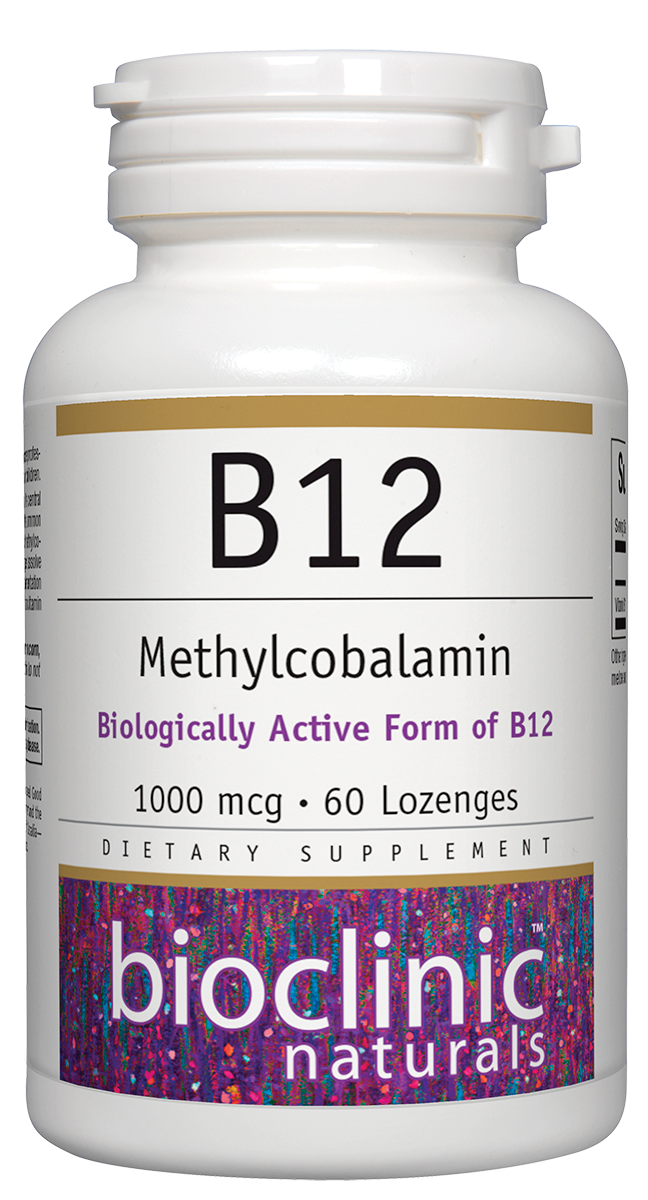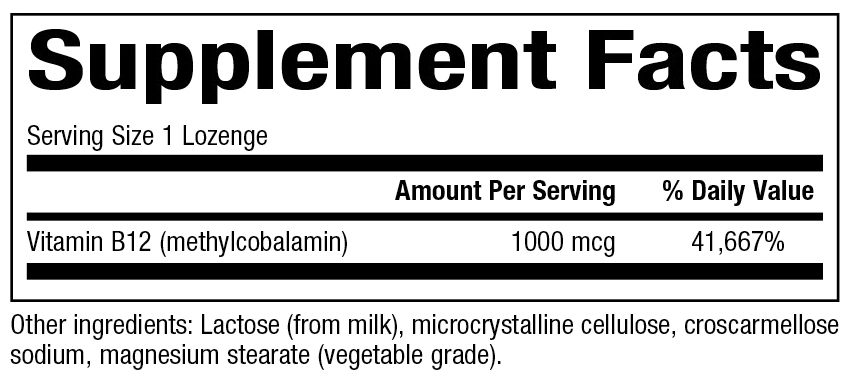
Biologically Active Form of B12
1000 mcg
60 Lozenges ( SKU: 9420U )
Supplement Facts:

Dosage:
Suggested Usage: Chew and swallow 1 lozenge per day or as directed by a health care professional.
Warnings:
Consult your health care professional prior to use if you are pregnant, trying to become pregnant, breastfeeding, taking medication, have a medical condition, or anticipate surgery. Keep out of reach of children.
Allergens:
Contains no artificial colors, preservatives, or sweeteners; no starch, sugar, wheat, gluten, yeast, soy, corn, egg, fish, shellfish, salt, tree nuts, or GMOs. Suitable for vegetarians.
